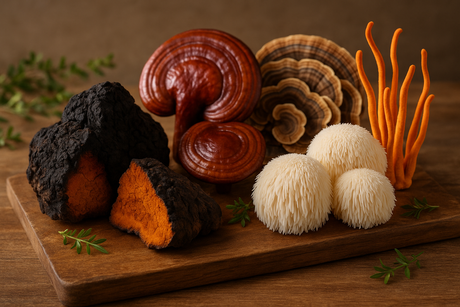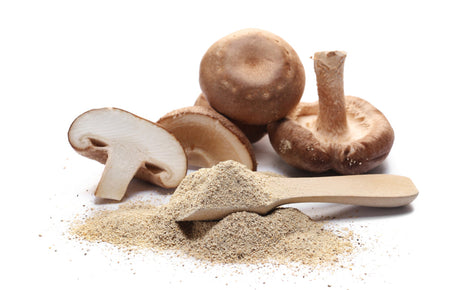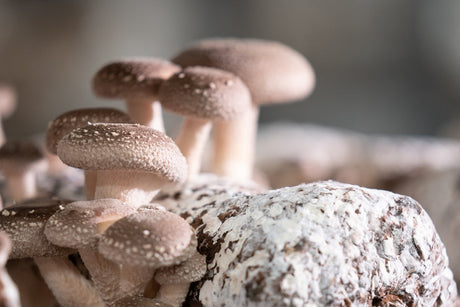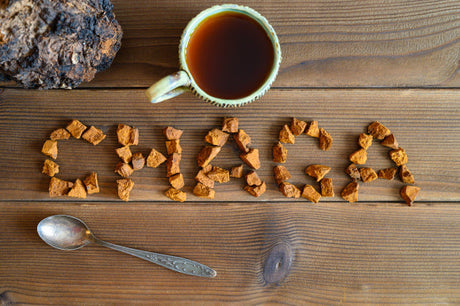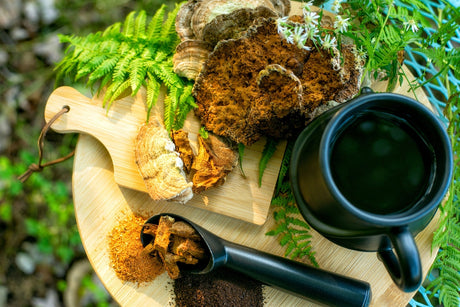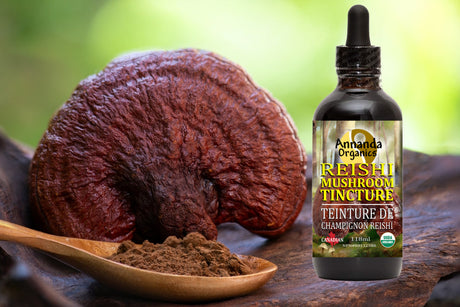Chaga Immune System
An international team of researchers found that in some people with severe COVID-19, the body goes rogue and attacks one of its own key immune defenses instead of fighting the coronavirus. Most were men, helping to explain why the virus is hitting men harder than women.
"I am a HUGE fan of Annanda Chaga. I have made your chaga part of my health regime for the last five years. I used to get really ill - the flu - at least twice a year. It would knock me down and out. Since chaga, I have been sick once - in January of 2020, along with my son and husband. I believe we all got the Covid virus at the same time. I knew it was a different kind of flu virus, and it felt like it was going to hit me like a sledge hammer. But Chaga saved us. I had us all consume strong brews non-stop for three days. By the third day, we were okay and it tapered off very fast after that, and left without a trace.
So - I tell everyone I can about your chaga, and I wish there were brews of it set-up in all the nursing homes, schools, hospital and shelters. Maybe ONE day! :-)"- Daliah B. California USA
Immune system - Natural defense against Covid-19 and other viruses
There are two main arms of the immune system. Innate immunity is the body's first line of defense. As soon as the body detects a foreign intruder, key molecules, such as interferons and inflammation-causing cytokines, launch a wide-ranging attack.
Innate immune cells also alert the slower-acting "adaptive" arm of the immune system, the germ-specific sharpshooters, to gear up. B cells start producing virus-fighting antibodies, the proteins getting so much attention in the vaccine hunt.
But antibodies aren't the whole story. Adaptive immunity's many other ingredients include "killer" T cells that destroy virus-infected cells—and "memory" T and B cells that remember an infection so they spring into action quicker if they encounter that germ again.
Usually when a virus invades a cell, proteins called Type I interferons spring into action, defending the cell by interfering with viral growth. But new research shows those crucial molecules were essentially absent in a subset of people with severe COVID-19.
New Studies underway suggest interferons could be a possible COVID-19 treatment
An international project uncovered two reasons. In blood from nearly 1,000 severe COVID-19 patients, researchers found 1 in 10 had what are called auto-antibodies—antibodies that mistakenly attack those needed virus fighters. Especially surprising, autoimmune disorders tend to be more common in women—but 95% of these COVID-19 patients were men.
Certain interferons are used as medicines and are under study as a possible COVID-19 treatment; the auto-antibody discovery adds another factor to consider.
They're the latest in a list of studies uncovering multiple features of the immune system's intricate cascade that can tip the scales between a good or bad outcome. Next up: Figuring out if all these new clues might offer much-needed ways to intervene.
"We have the knowledge and capability of really boosting many aspects of the immune system. But we need to not use the sledge hammer," cautioned Dr. Betsy Herold of New York's Albert Einstein College of Medicine, who co-authored the child study.
Separate research suggests that children fare better than adults thanks to robust "first responder" immune cells that wane with age.
It's not clear why children appear less at risk from COVID-19. But occasionally they're sick enough for hospitalization, giving Herold's team the opportunity to compare 60 adults and 65 children and teens at New York's Montefiore Health System.
The children produced much higher levels of certain cytokines that are among the innate immune system's first responders. When the immune system's next stage kicked in, both adults and children made antibodies targeting the coronavirus. Here's the rub: The adults' adaptive immune response was more the type that can trigger an inflammatory overreaction.
Chaga Mushroom encourages Immune System to fight COVID-19
Chaga mushroom and birch bark are also powerful antiseptics with potent anti-viral action. The key substances responsible for this is the phenolic compound hispidin which is found exclusively within chaga and birch bark. As such, chaga extracts have a profound ability to activate the immune system. Not only to stimulate, but to optimize its inherit function to repel dangerous invaders and viruses both sudden and those which may have chronically infected one's system. Chaga activates various immune cells and encourages them to release interferon and interleukins which seek and destroy invading cells like COVID-19. The most powerful of these are vital anti-viral and anti-tumor natural killer (NK) cells.

Wild Harvested Canadian
Chaga Tincture
The combination of sterols, super-oxide dismutase, and phenolic compounds in such massive amounts make Chaga Mushroom not only a boon for optimal health but a reminder that we need to embrace natural foods that stimulate our immune system to fight viruses like COVID-19
Article: Optimize your Immune System with Chaga Mushroom protection against viruses and other pathogens
Sources:
Paul Bastard et al. Auto-antibodies against type I IFNs in patients with life-threatening COVID-19, Science (2020). DOI: 10.1126/science.abd4585
Qian Zhang et al. Inborn errors of type I IFN immunity in patients with life-threatening COVID-19, Science (2020). DOI: 10.1126/science.abd4570
Carl A. Pierce et al. Immune responses to SARS-CoV-2 infection in hospitalized pediatric and adult patients, Science Translational Medicine (2020). DOI: 10.1126/scitranslmed.abd5487








